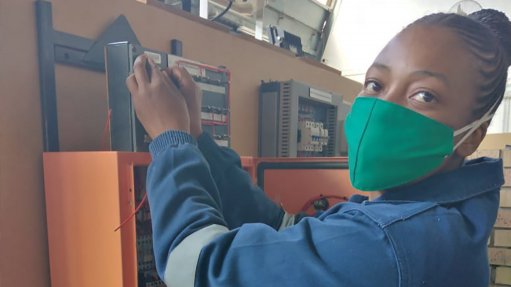
The Department of Public Works and Infrastructure (DPWI) has provided about R66-million to AgriSeta to train 400 Expanded Public Works Programme (EPWP) participants to become artisans.
The funding was provided by the Department of Higher Education and Training’s (DHET’s) National Skills Fund (NSF) through a partnership and confirmed in a memorandum of agreement for the training of EPWP participants on skills programmes, learnerships and artisan development programmes over a multiyear period.
“We partnered with AgriSeta, as they previously implemented a similar project and we were satisfied with the results. The department is committed to develop and nurture scarce skills as part of DPWI on-going transformation process of the built industry,” DPWI acting director-general Imtiaz Fazel said in a statement on August 24.
The agreement between DPWI and AgriSeta to implement the artisan development programme will start immediately and continue up until September 30, 2023, or until completion of the project – whichever comes first.
AgriSeta will manage the implementation and provide technical support to the project, in order to ensure that all 400 artisans are trained.
“This is no small feat for us and we are honoured as AgriSeta to perform the obligations of the project implementation, which includes administration and reporting, as well as the procurement and contracting of relevant training providers, which will be done in consultation with DPWI to ensure clear guidelines and transparency,” AgriSeta CEO Zenzele Myeza commented.
AgriSeta is also responsible for sourcing relevant workplaces for all 400 trainees in artisan development, as well as to certify all accreditation requirements of training and appointment of service delivery agents for the duration of the project.
The project aligns to the National Skills Development Strategy III and the National Skills Development Plan 2030, which prioritises artisan development programmes to address technical skills shortages. It is also in line with the envisaged catalytic role of the NSF to drive change towards partnership-based programmes and contribute significantly to raising the low base of education and training in the country, guided by government strategies and policies of redress and equity.
AgriSeta will ensure joint monitoring with the DPWI, continuous quality assurance, verification and the timeous completion of certification of successful participants.